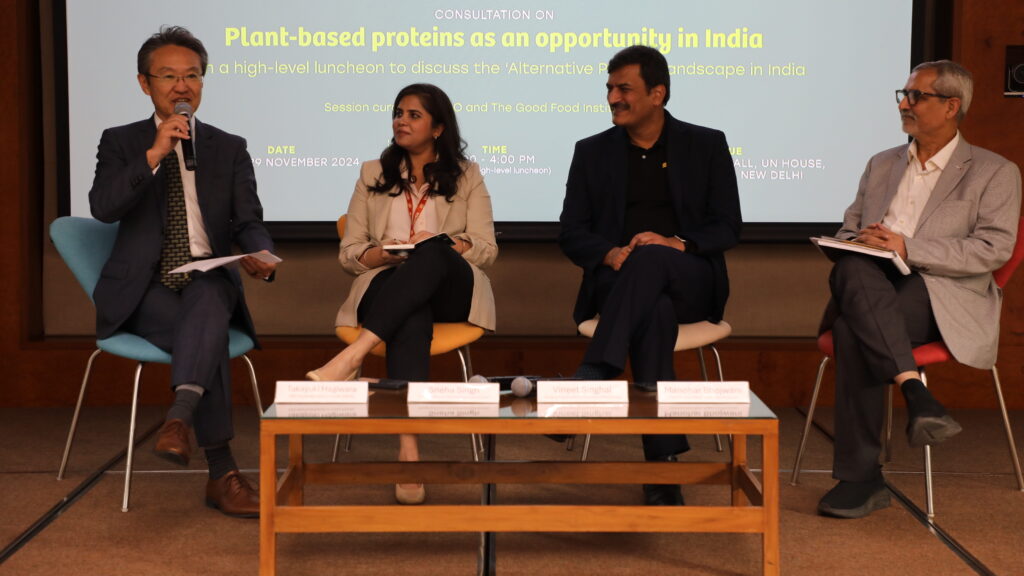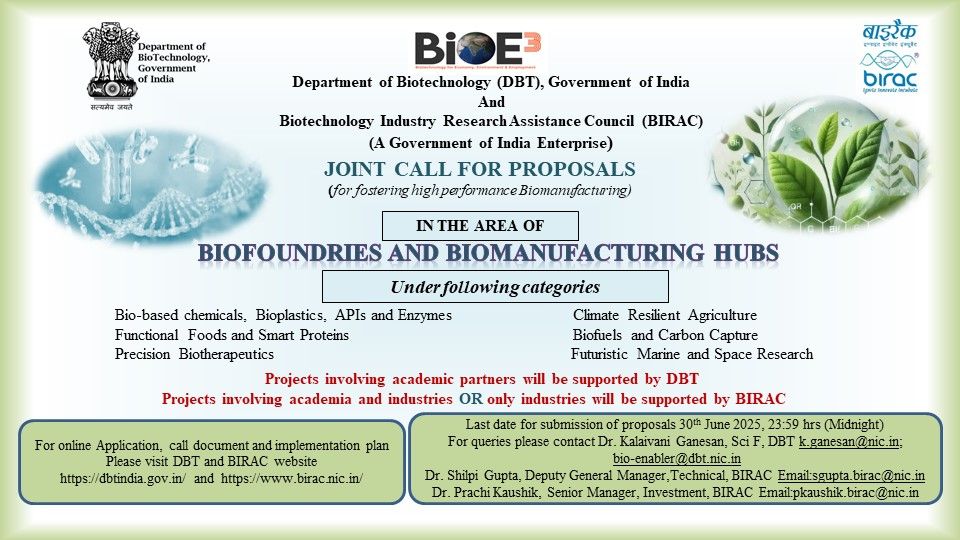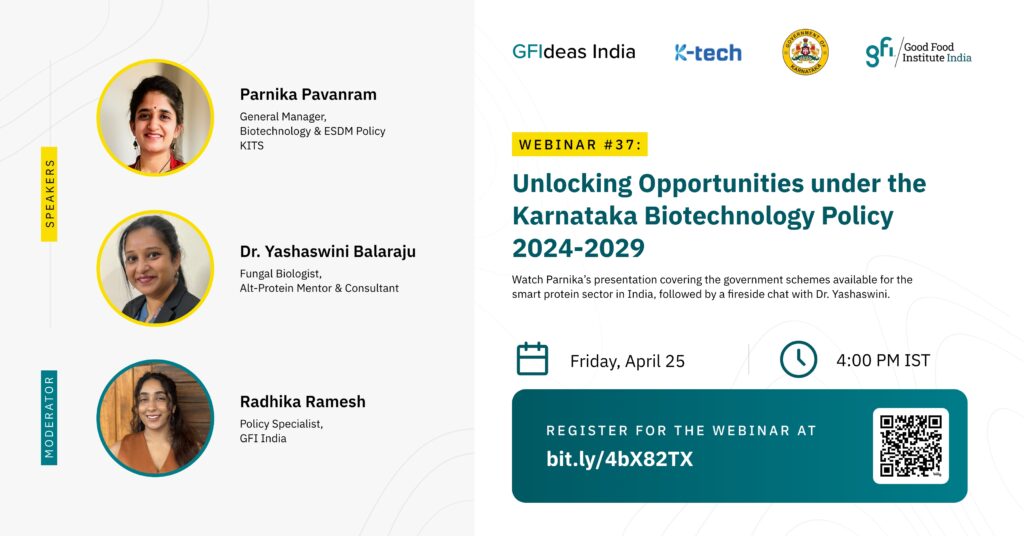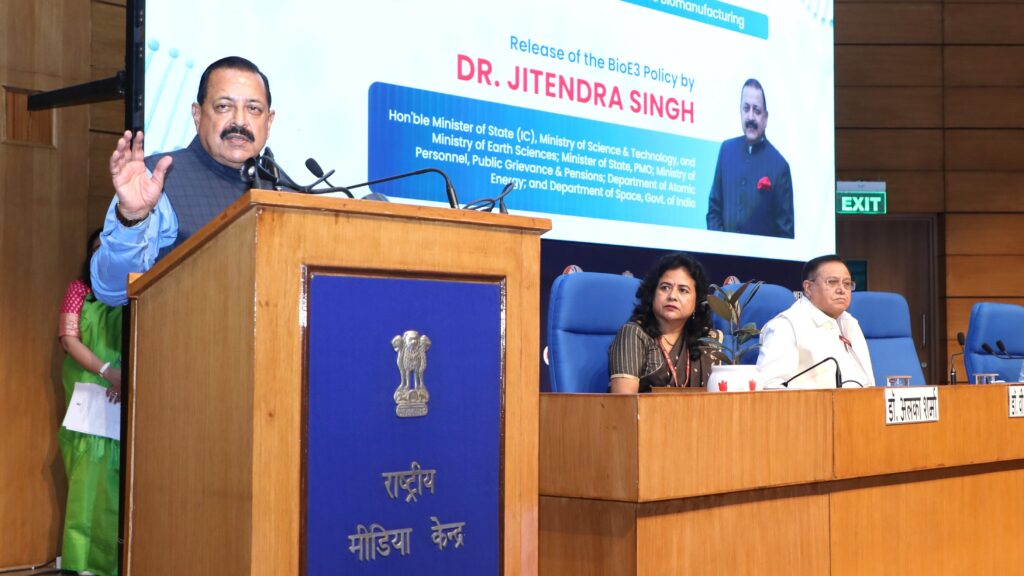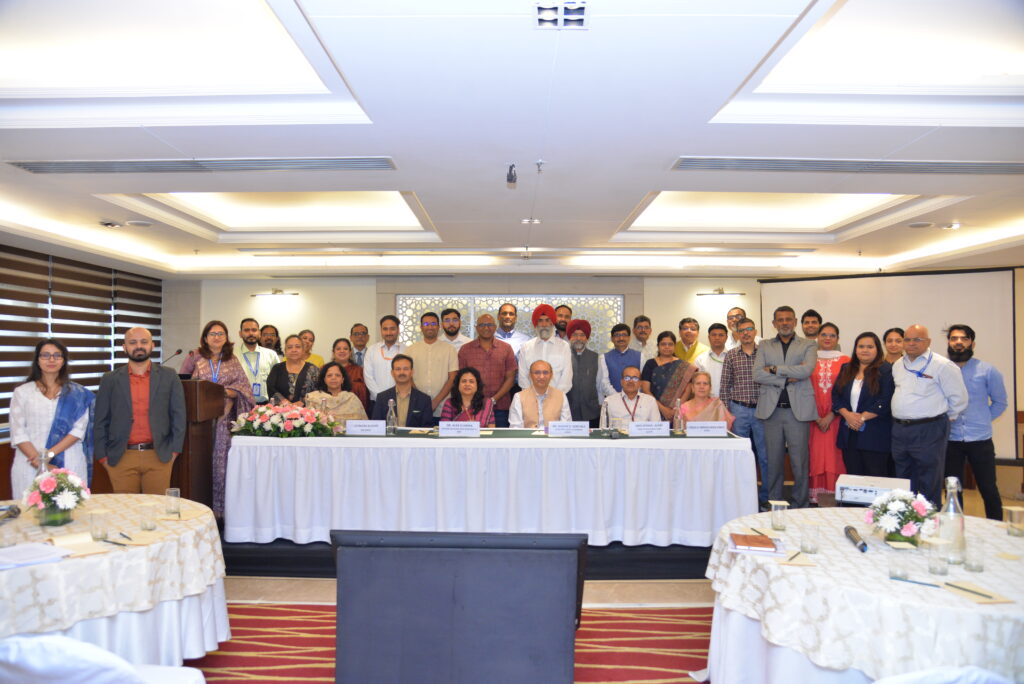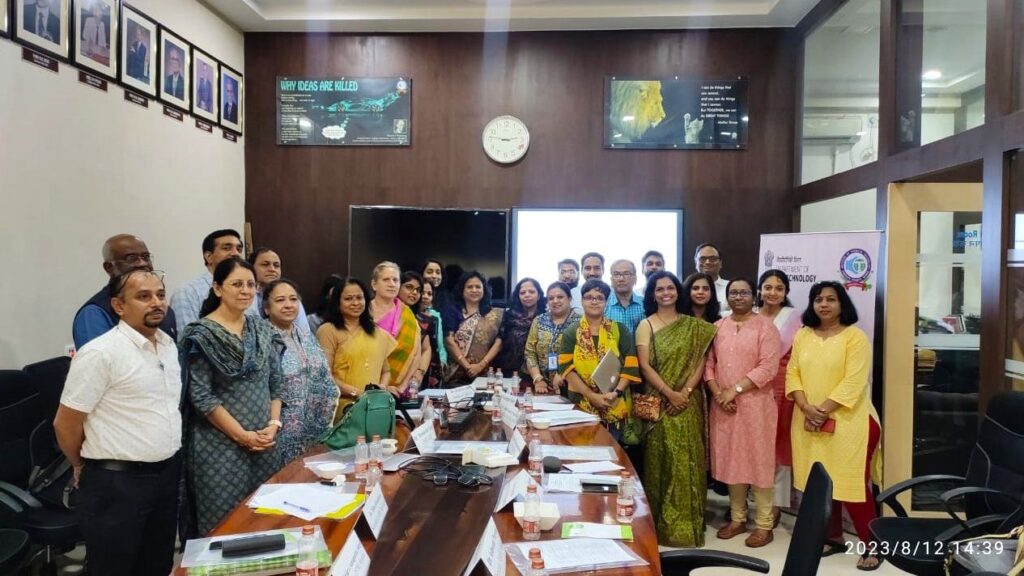
Policy
As the most populous nation and one of the fastest-growing large economies in the world, India will play a key role in efforts to make global food systems more sustainable, safe, and resilient.
GFI India works with decision-makers in the Government of India and engages with civil society organisations in the climate and sustainability space to help realise the potential of smart proteins as an innovation that addresses multiple national priorities. We also represent at multilateral forums to ensure that the global south narrative around alternative proteins is part of the discourse. Our policy work in India focuses on encouraging allocation of public resources towards R&D in smart protein research, integrating innovative solutions into broader agricultural strategies, and establishing India as a key player in the global transition to a more sustainable food future.
The role of governments in supporting and championing emerging technologies with positive wide-reaching results has been established. The Government of India’s foresight has made India the ‘office’ and the ‘pharmacy’ of the world — with a $245 bn IT industry and a nearly $65 bn pharmaceutical industry. India has recently demonstrated strong leadership in renewable energy, now holding the fourth-largest installed solar power capacity in the world. Smart proteins are well positioned to be the next promising revolution from India thanks to its numerous comparative advantages — a vibrant agriculture sector, a booming biotech industry, a large, young and educated population, and the penchant for low-cost scientific breakthroughs — all critical elements for the smart protein industry to thrive.
Policy focus areas

Securing government support
Dedicated support from the Indian government is crucial to propel the growth of the smart protein ecosystem and integrate it within our food systems. GFI India works with representatives from the central and state governments to secure dedicated funding for R&D, expand manufacturing, plan infrastructural development, and boost entrepreneurial initiatives.

Ensuring a clear path to market
Alternative proteins have many benefits for people, the planet, and animals, but in order to maximise their potential in the global market, clear and efficient regulatory pathways are essential. GFI India works towards establishing clear regulatory frameworks for smart protein, guiding companies to ensure compliance and enhance the regulatory ecosystem’s capacity to make smart protein products accessible to Indian consumers.

Novel food regulations around the world
Take a closer look at how forward-thinking nations throughout Asia and the world are making moves to bring the future of food to today’s consumers.

Current regulatory framework and regulatory approvals
Establishing clear regulatory frameworks for smart protein products sets them up for market success.

Regulatory Advisory Council (RAC)
To build regulatory capacity in the ecosystem, GFI India has established a council of legal firms and regulatory consultancies committed to supporting our mission for a clear path to market for smart protein.
‘Observer’ status at Codex Alimentarius Commission
Internationally, GFI works closely with key regulatory agencies and government bodies to help develop standards and guidelines for the alternative protein industry. GFI has also been granted an official ‘Observer’ status in the Codex Alimentarius Commission and has been actively involved in the relevant Codex working groups and agendas. More information can be found here.

Civil society engagement
GFI India also engages with leading civil society organisations and think tanks to bring forth alternative proteins in the climate, sustainability, public health, and agrifood discourse in India. We organise knowledge sessions like roundtables, webinars and panels to build capacity and scope for high-impact research work that builds evidence supporting alternative proteins in a developing country like India.
Policy opportunities for India
The potential economic benefits associated with smart proteins are substantial for India. An early mover’s advantage in a rapidly advancing technology-forward sector could bolster economic growth and create new avenues for investments, employment, and production.

The economic case for smart proteins
This brief outlines pivotal opportunities and challenges, with actionable recommendations for policymakers and other stakeholders, to support the growth of this sunrise sector.
Environmental benefits of smart proteins
Smart proteins offer significant environmental benefits by reducing the ecological footprint needed to produce our proteins through reduced greenhouse gas emissions and the use of natural resources like water and land. Smart proteins can help mitigate environmental degradation and promote sustainable food systems and practices in India.
Key resources
Briefs
The economic case for India’s smart protein sector
With long-standing strengths in agriculture, biotech, and manufacturing, India has the potential to become a global leader in smart protein production. Building this economic case for India, this brief outlines pivotal opportunities and challenges, with actionable recommendations for policymakers and other stakeholders, to support the growth of this sunrise sector.
Pathways for government support to promote the smart protein sector
Improving the taste, price, and nutritional value of smart protein products requires systemic interventions and coordinated action across policy initiatives, public funding, and regulatory action. In our second policy brief, we outlined ways in which the Indian government can accelerate their support for the growth of the sector and put India on the map for this emerging technology.
Smart Protein: Reimagining safer protein production for India
As India’s per capita demand for animal protein is slated to increase, the country faces an imminent threat of increased antimicrobial resistance (AMR)-related infections and zoonotic diseases. Our third policy brief explores how smart protein can avert dangerous risks to public health like AMR, zoonoses, and food-borne illnesses while providing safer and sustainable nutrition to the masses.
Reports
Regulatory resources
Navigating the regulations on advertising and claims for smart protein products in India
In an effort to protect consumers and equip them to make informed decisions about their food choices, the food regulatory body in India – the Food Safety and Standards Authority of India (FSSAI), has laid down regulations for advertising food products and making claims about them – such as ‘Vegan’. This guide seeks to provide a snapshot of the advertising and claims regulations in India for smart protein producers.
Incorporating a private limited company
This guide is designed to provide a step-by-step approach to help entrepreneurs and businesses navigate the complex process of establishing a private limited company in India. It was developed in partnership with BTG Advaya, a pan-India full-service law firm and member of GFI India’s Regulatory Advisory Council (RAC).
Importing food in India
Importing food products into India is a complex process due to strict regulations and guidelines. To help navigate this process, this brief guide provides importers with an overview of the preliminary steps to import food in India and the framework under the Food Safety and Standards Authority of India (FSSAI).
Labelling and display of pre-packaged foods
This guide offers a comprehensive overview of the labelling and display requirements and regulations for smart protein products in India. It is tailored to assist smart protein companies within achieving compliance, thereby ensuring smooth operations and adherence to legal requirements.
FSSAI licensing for food businesses
This comprehensive guide provides a detailed walkthrough of the online application process through the FSSAI Food Safety Compliance System (FoSCoS) portal, ensuring businesses can efficiently manage their licensing needs. It outlines the State and Central licensing criteria, helping entrepreneurs identify their requirements, and explains the Kind of Business (KoB) groups identified by FSSAI, detailing the types of enterprises that require licenses and their eligibility.
External resources
Recent updates
Meet our experts

Arghadeep Saha
Head of Policy
Arghadeep leads the strategic direction for our policy work with a keen focus on building relationships with critical government and civil society stakeholders.

Radhika Ramesh
Policy Specialist
Radhika identifies levers and creates opportunities to help integrate smart protein into India’s policy framework and priorities.

Astha Gaur
Senior Policy Specialist – Regulatory
Astha leverages her legal expertise to advise and guide the establishment of a fair and transparent smart protein regulatory framework in India.

